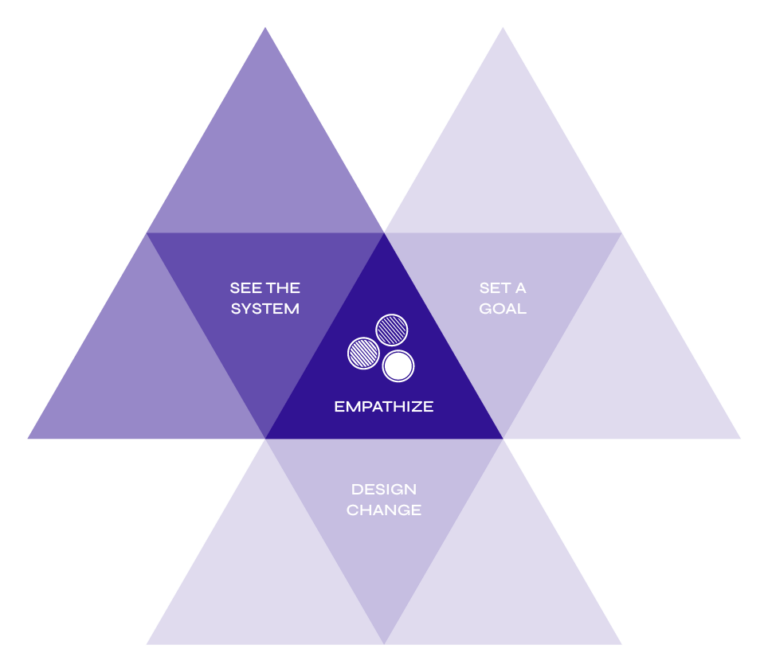School teams conduct monthly empathy interviews with students in order to ground their work in student experiences.


School teams knew they needed regular interactions with students to redesign college and career supports across the year. They conducted monthly empathy interviews with students who were likely to be admitted into college but less likely to enroll. Listening deeply to student stories aided team members’ understanding how students of color were experiencing their school’s college and career systems and design towards students’ real needs.
In this case study, adults empathize with students in order to see the system. Learn more about the student-powered improvement framework here.

High school teams of teachers, counselors, administrators, and representatives from community-based organizations conduct monthly empathy interviews with students of color to inform work related to improving college and career systems. These teams are part of the College and Career Leadership Institute, a network focused on high school college and career readiness.
School teams use empathy interview data to gain a deeper understanding how students of color experience the schools’ college and career systems. Interviews mean that school teams have a regular practice of listening to and learning from students themselves, rather than making assumptions and decisions only from an adult perspective. “Teams used to assume things they thought students thought and felt,” said Alexis Sullivan, College and Career Improvement Coach. “Now teams are grounded in what they actually say rather than their assumptions.”
Network leaders carefully set criteria for which students to interview so that selected students met all of these criteria:
Once students were selected, school staff members conducted individual empathy interviews with them each month. Whenever possible, the same students were interviewed by the same staff member each month in order to build trusting relationships. However, the questions changed from month to month. For example, September 2020 questions included, “Tell me about what one day looked like during distance learning last spring,” and “Tell me about someone you have a stronger relationship with now than you did before COVID.” In March, 2021, the questions included, “Tell me about a time you connected with a teacher or counselor this year during remote learning,” and “Tell me about a time an adult has talked to you about your future.”
Team members were trained to conduct monthly empathy interviews. Training and the interview protocols emphasized characteristics of empathy interviews such as:
Team members recorded their data from empathy interviews in a google form. The resulting data were displayed in Tableau, the program used for all network-related data, thanks to behind-the-scenes support from the network’s data and measurement team. Monthly school team network meetings included time to analyze and respond to the data from empathy interviews. “We started meetings with empathy data to ground everyone in where students are at that time. Everyone read the responses and then discussed the themes,” described Alejandra Pérez, College and Career Manager. Themes found across empathy interviews were also used in network convenings.
Teams also used empathy data to return to their root cause analysis and theory of improvement. For example, school teams took empathy interview themes and mapped them onto their original fishbone diagram representing their problem of practice. This helped teams uncover new root causes of the problem as well as highlight the causes that were most reported by students themselves.
In the CCLI network, empathy interviews are much more than a one-time thing. Instead, as described in this case study, empathy interviews happen every month. Methods for gaining student voice are also multi-faceted in this network; student surveys specific to the college and career work are also used at least annually and the network has also trained members to conduct student focus groups and listening sessions. “Every year our methods might be different, but empathy interviews and a student survey are always part of what we do,” said Alejandra Pérez, College and Career Manager.
Schools are given very specific criteria for who to select for interviews. As described in the case study, this includes interviewing students of color and those who are not yet part of college access programs. The students of color they selected also fell in a particular GPA range (2.5 to 3.0) because data showed that those students were likely to be admitted into college but less likely to enroll. “We know that these are the students who aren’t being listened to,” said Alexis Sullivan, College and Career Improvement Coach. “We think it is most important to hear from them.”